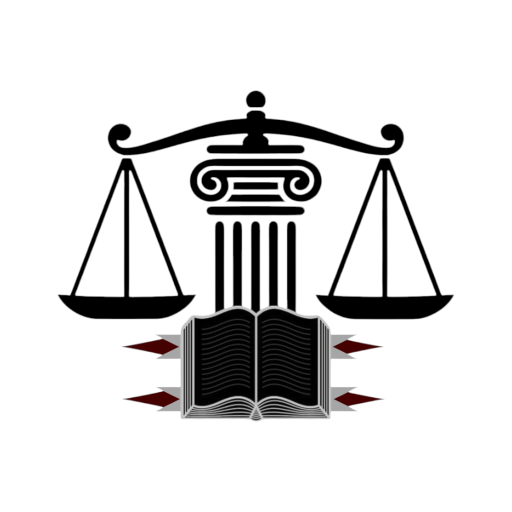INTRODUCTION:
The sources of law refer to the origins or foundations of laws that govern a society. These sources provide the binding rules that enable any state or society to function within a structured legal framework. In a broader sense, the term \”source of law\” may also refer to the sovereign authority or governing body from which the law derives its legitimacy.
DEFINITION:
Sources of law are the instruments or organs of the state by which legal rules are created and implemented. They serve as the channels through which laws are established, codified, and enforced.
Sources of law are typically categorized into two broad types:
-
Legal Sources
-
Non-Legal Sources
1. Legal Sources of Law:
Legal sources refer to the organs or instruments that create and enforce legal rules. These sources are officially recognized by the law and hold legal authority.
I. Constitution:
The Constitution is the supreme source of law in any country. It provides the fundamental framework for governance, laying down the structure of government and the powers and duties of its various branches. It acts as the cornerstone of the legal system.
-
Role: The Constitution allocates powers among the legislative, executive, and judicial branches of the government, which are themselves sources of law.
-
It is the source of all legal norms, as every law and rule must comply with the Constitution to be valid.
II. Legislation:
Legislation refers to laws that are enacted by the legislature, which is an official body responsible for creating laws.
-
Meaning: Derived from the Latin words \”legis\” (law) and \”latus\” (to make), legislation is the formal process of lawmaking.
-
Role: Legislation is a direct source of law, encompassing new laws, amendments to existing laws, and the repeal of outdated laws. Legislatures play a pivotal role in the law-making process, shaping the legal landscape in response to changing societal needs.
III. Judicial Precedents:
Judicial Precedents or case law refer to decisions made by courts in previous legal cases. When judges face legal issues that have not been addressed by existing statutes, they rely on precedents (previous judicial decisions) to guide their rulings.
-
Role: Precedents serve as authoritative guidance for future cases with similar facts or legal issues. It ensures consistency and predictability in the application of the law. Judicial precedents are particularly important in common law systems, such as those in the United Kingdom and the United States.
-
Flexibility: Precedent is more adaptable than legislation or custom, as it can evolve in response to changing societal conditions.
IV. Conventional Law (International Treaties/Agreements):
Conventional Law refers to international treaties, agreements, or conventions that create binding legal obligations between states or parties.
-
Role: These treaties and conventions are sources of law because they regulate the conduct of states in specific matters, such as trade, human rights, or environmental protection.
-
Influence: International agreements play an important role in shaping the laws of a country, especially in the context of international law.
2. Non-Legal Sources of Law:
Non-legal sources are not created by sovereign authorities, but they still have significant influence over the legal system. These sources do not have formal legal authority but can shape legal norms and societal behavior.
I. Customs:
Customs are the oldest and one of the most important sources of law, especially in early societies. They represent the habitual actions or behaviors followed by a majority of the people in a community.
-
Role: Once customs are established and widely accepted, they may be enforced by the state. While customs are not laws by themselves, they can evolve into laws if recognized and formalized by the legal system.
-
Influence: Customs play an important role in filling gaps in written laws, particularly in societies with unwritten traditions.
II. Religion:
In many societies, religion has historically been a vital source of law. Religious doctrines and beliefs often serve as a foundation for legal systems, influencing the creation and enforcement of laws.
-
Role: In some countries, religious laws (e.g., Sharia law, Canon law) directly influence the legal system. In others, religious moral principles may inform the development of civil law.
-
Example: In Islamic countries, Sharia law governs not only religious practices but also legal matters, particularly in family law and criminal law.
III. Juristic Writings:
Juristic writings refer to the works, opinions, and commentaries of legal scholars and experts who analyze and interpret laws.
-
Role: These writings, which include theoretical discussions and practical suggestions, often provide guidance to judges and legislators in interpreting and developing laws.
-
Influence: Although juristic writings do not have direct legal authority, they can shape the direction of legal thought and influence judicial decisions. For instance, the writings of famous jurists like Salmond, Bentham, or John Locke have significantly influenced legal systems.
Conclusion:
The sources of law are essential to understanding the legal framework of a society. Legal sources such as the constitution, legislation, judicial precedents, and international agreements provide the formal legal norms that govern a country. Meanwhile, non-legal sources like customs, religion, and juristic writings help shape the moral, social, and ethical underpinnings of the law. Together, these sources work in tandem to create a dynamic and evolving legal system that reflects the values, needs, and priorities of society.
